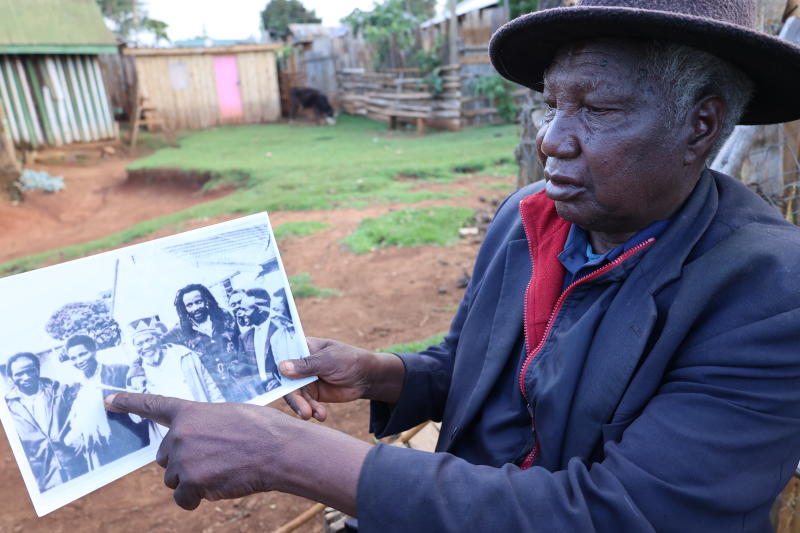×
The Standard e-Paper
Home To Bold Columnists

Field Marshal Musa Mwariama’s aide, Brigadier Joseph Mwenda, recalls a moment with Mzee Jomo Kenyatta and a dreadlocked Mwariama. [Presidential Library and Museum]
During the reign of the British Empire in Kenya, the biggest challenge for the colonial administration was the independence war waged by Mau Mau war veterans.